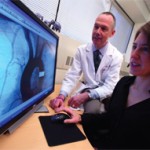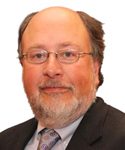While the scope and impact of the ACR clearly reflect the engagement and passion of its members, success is also in no small part the result of the dedication and hard work of a highly professional staff working in the ACR office in Atlanta. Of course, it is always easier to see all that is going on from within the organization than from the point of view of a busy workweek and the daily grind.
One area in which we sometimes struggle is effectively communicating the activities and benefits of the ACR to our members—even with much work and attention focused on this important need. To this end, I encourage everyone to review the material that comes to you from the ACR and to send your questions and feedback to the staff if you do not find the information you are looking for. Our website, is a good place to learn about ACR activities and access materials.
Despite wishing to convey a genuinely positive message, one need look no further than the homepage of any news service to see that we—and our patients—face many challenges. The current, rapidly shifting political, administrative and funding policies make it difficult to predict future needs. This shifting landscape requires vigilance and the ability to respond rapidly. The ACR seeks to chart a balanced and collaborative course, but we have not hesitated to advocate for the interests and needs of our members and patients. This impact can be even greater through the involvement of individual members in RheumPAC and other advocacy efforts, and I encourage you to become personally involved in advocacy.
Even if the daily news were calmer, there is no doubt the ACR is entering a time of transition. Technological advances are rapidly changing the ways in which our members interact with the ACR, just as they will change the ways in which we interact with our patients. Funding for clinical care, education, research and drug development will be constrained for the foreseeable future. This, in turn, challenges us to use our funds efficiently and to identify new sources of funding to support the important activities of the ACR.
Looking to the Future
As the generation that built the field of rheumatology and the ACR ages and imminently moves to retirement, a new generation of rheumatology providers will move forward with different needs and expectations. The ACR must adapt to continue to serve them well. Development of young leaders has been a recent major focus of the organization and this will continue.


